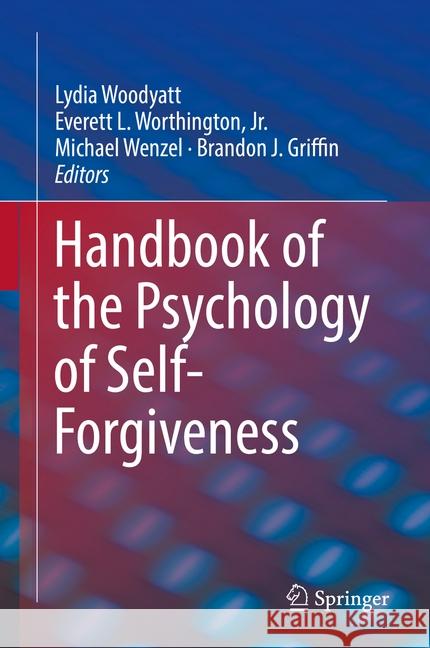Handbook of the Psychology of Self-Forgiveness » książka
Handbook of the Psychology of Self-Forgiveness
ISBN-13: 9783319605722 / Angielski / Twarda / 2017 / 369 str.
The present volume is a ground-breaking and agenda-setting investigation of the psychology of self-forgiveness. It brings together the work of expert clinicians and researchers working within the field, to address questions such as: Why is self-forgiveness so difficult? What contexts and psychological experiences give rise to the need for self-forgiveness? What approaches can therapists use to help people process difficult experiences that elicit guilt, shame and self-condemnation? How can people work through their own failures and transgressions? Assembling current theories and findings, this unique resource reviews and advances our understanding of self-forgiveness, and its potentially critical function in interpersonal relationships and individual emotional and physical health. The editors begin by exploring the nature of self-forgiveness. They consider its processes, causes, and effects, how it may be measured, and its potential benefits to theory and psychotherapy. Expert clinicians and researchers then examine self-forgiveness in its many facets; as a response to guilt and shame, a step toward processing transgressions, a means of reducing anxiety, and an essential component of, or, under some circumstances a barrier to, psychotherapeutic intervention. Contributors also address self-forgiveness as applied to diverse psychosocial contexts such as addiction and recovery, couples and families, healthy aging, the workplace, and the military. Among the topics in the Handbook
- An evolutionary approach to shame-based self-criticism, self-forgiveness and compassion.
- Working through psychological needs following transgressions to arrive at self-forgiveness.
- Self-forgiveness and health: a stress-and-coping model.
- Self-forgiveness and personal and relational well-being.
- Self-directed intervention to promote self-forgiveness. Understanding the role of forgiving the self in the act of hurting oneself.











